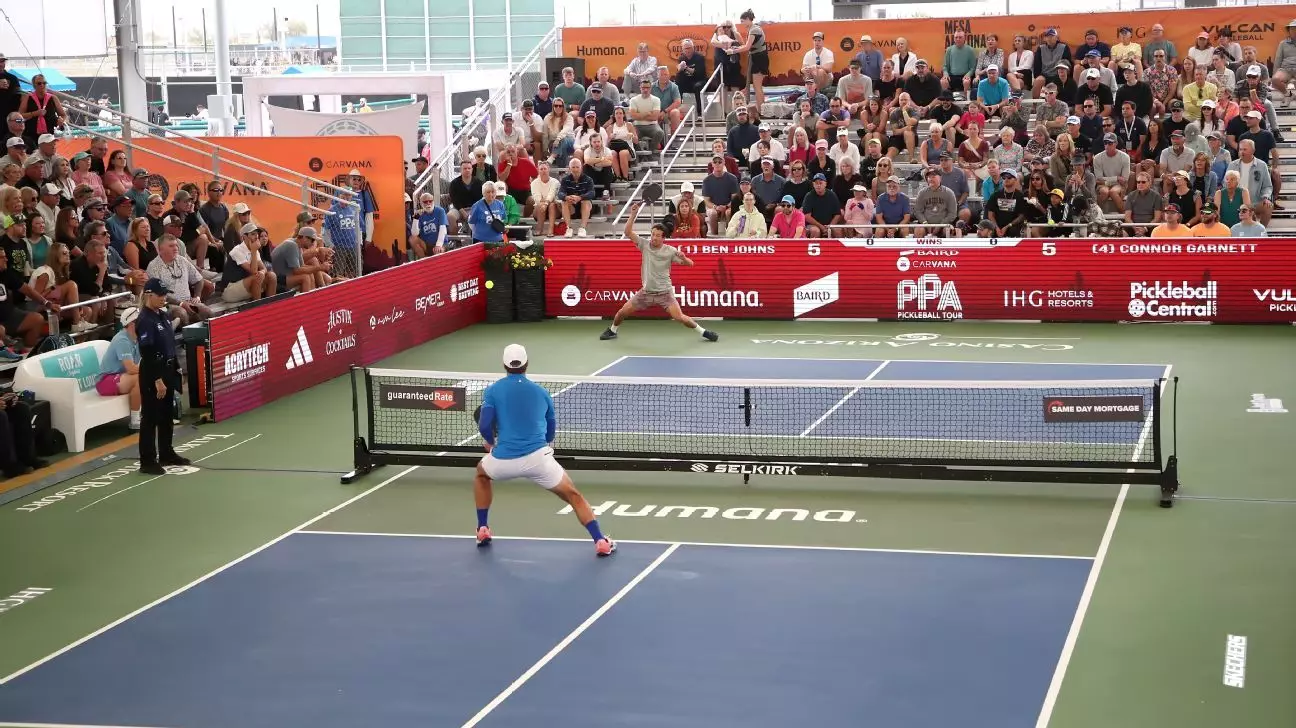The establishment of the World Pickleball Players Association (WPPA) marks a groundbreaking moment in the evolution of professional pickleball. Unlike traditional sports where players often exist as passive participants under the control of external leagues, the WPPA asserts a striking shift towards empowerment and self-governance. This move signals not just a desire for better conditions but a fundamental redefinition of player agency within the sport’s structure.
What sets this initiative apart is its emphasis on unity and formal organization. For the first time in pickleball history, players across various levels and leagues are consolidating under a single umbrella, advocating collectively for issues that impact their careers and wellbeing. By doing so, they challenge the longstanding trend of fragmented influence, making a clear statement: players are no longer content to be merely commodities to be exploited or overlooked.
This collective effort underscores a vital truth—player voices are powerful when amplified collectively. It also hints at a broader societal shift within sports, where athlete advocacy and rights are increasingly prioritized, mirroring movements in tennis, basketball, and football. The WPPA’s initiative thus positions pickleball at the forefront of athlete-led reform, arguably influencing other emerging sports to consider similar pathways.
Balancing Collaboration and Independence
One of the most insightful aspects of the WPPA’s formation is its deliberate stance on collaboration with existing leagues. Collin Johns, a key figure in the movement, stresses that the association is not inherently adversarial. Instead, it’s about setting minimum standards—fair treatment, transparency, and safety—that resonate with players regardless of their ranking or earnings.
This pragmatic approach reflects a nuanced understanding: the goal isn’t to dismantle the existing tour system but to elevate it. By establishing a separate, player-led entity that can engage cooperatively with tournament organizers and leagues, the WPPA aims to foster a culture of mutual respect and shared responsibility. It recognizes that progress in sports often requires alliances and negotiations—not confrontation.
Furthermore, the association’s focus on core issues like health, safety, and transparency highlights a crucial deficiency in the sport’s current ecosystem. Many players, especially those lower ranked, have felt sidelined or overlooked in decisions affecting their careers. The WPPA seeks to rectify this imbalance, promoting fairness across the board in a sport that is experiencing rapid growth.
Lessons from the Broader Sports Landscape
The influence of external organizations like Sports Solidarity and parallels with established athlete associations such as the Professional Tennis Players Association bring valuable perspective. These organizations illustrate that independent, athlete-led groups can serve as powerful catalysts for change, even if they initially resemble association-like models rather than full-fledged unions.
In tennis, for example, the PTPA has demonstrated that athlete-driven collectives can advocate successfully for agenda-setting, influencing tournament policies and prize structures. The fact that pickleball players are taking similar steps shows a maturity in the sport’s development—they understand that their collective strength can challenge status quo dynamics and forge a more equitable future.
It’s not simply about financial gains, although these are undoubtedly significant given the sport’s burgeoning popularity and lucrative sponsorships, but about establishing a sustainable environment where player welfare and rights are prioritized. This attitude represents a crucial evolution from the “pay-to-play” narrative and fosters a culture where athletes are ultimately co-creators in their sporting destinies.
The Future of Pickleball and Player Power
Driven by this fresh wave of organizational consciousness, the future of pickleball appears poised for transformative change. By advocating transparency, reworking ranking systems, and prioritizing safety measures, the WPPA positions itself as a formidable force that can influence policies at multiple levels.
More importantly, this movement signals a broader cultural shift: athletes are increasingly asserting that they deserve ownership and control over their careers. As the sport continues to explode in popularity, this momentum could redefine how sports organizations operate, offering a blueprint for other emerging athletic landscapes.
The advent of the WPPA isn’t just about improving conditions—it symbolizes a fundamental recognition of the athlete’s role as an active stakeholder, not merely a participant. If this union sustains momentum, it could serve as a blueprint for athlete empowerment, shaping a more just, transparent, and athlete-centric future for pickleball and beyond.


Leave a Reply